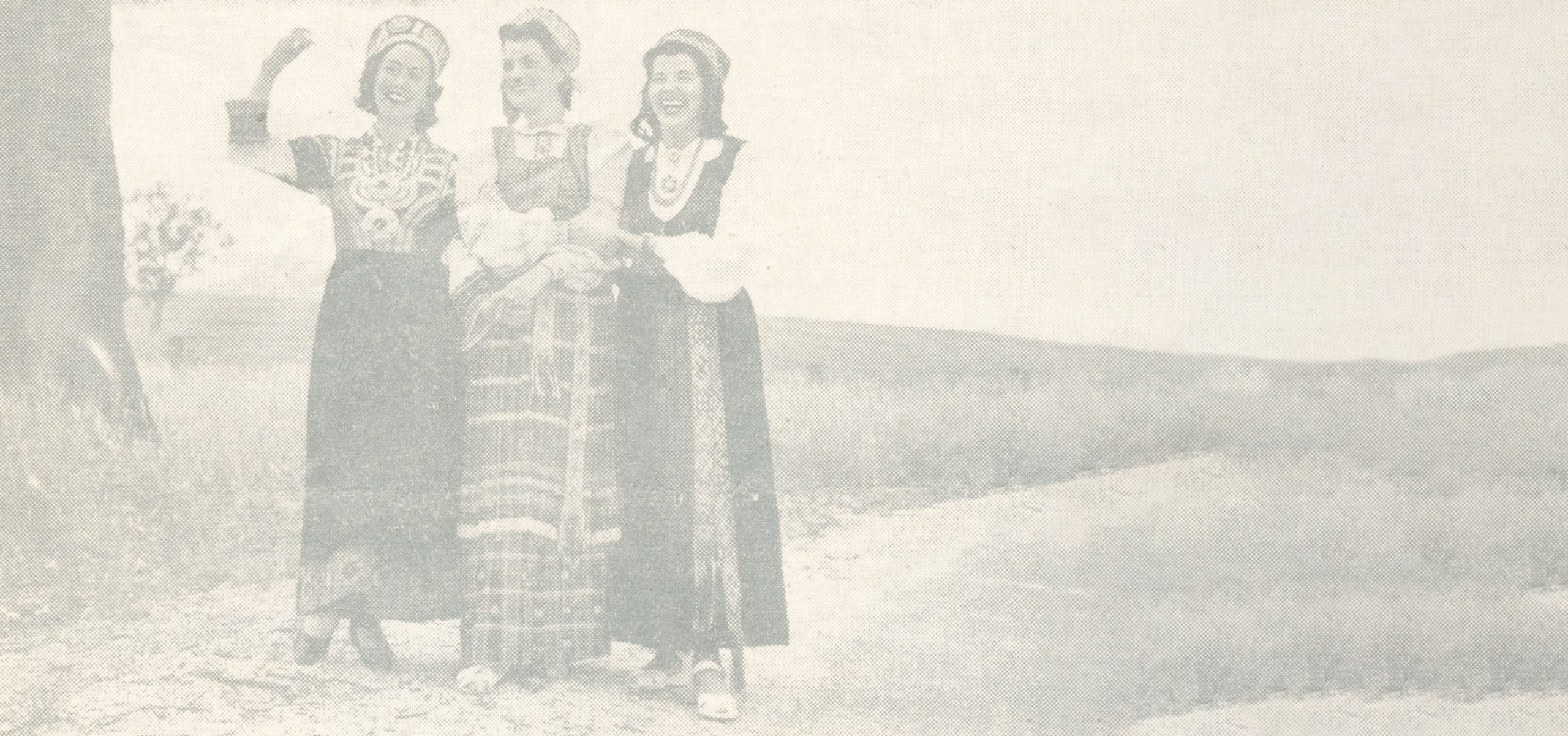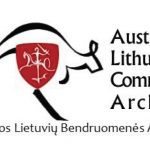In the late 1980’s, as the Soviet empire was collapsing, Lithuania grasped a historic opportunity to re-establish its independence. With his wife Vida, Algis travelled to Lithuania in 1989 to meet his hero Vytautas Landsbergis, the leader of the freedom movement “Sajudis”. On 23 August 1989, the fiftieth anniversary of the Molotov-Ribbentrop pact, they and some two million other Lithuanians, Latvians and Estonians joined hands in a 670km human chain, known as the “Baltic Way”, to mourn the enormous losses suffered as a result of this pact.
On 16 April 1990, President Landsbergis appointed Algis to be the representative of the Lithuanian Government in Australia.
On 27 August 1991, Australia recognised the independence of Lithuania, Latvia and Estonia. Then, on 30 October 1991, Algis was appointed the first Honorary Consul of the Republic of Lithuania. He was overjoyed when Lithuania joined NATO on 29 March 2004 and the EU on 1 May 2004. In his last days, Algis saw the setting up of the Lithuanian Embassy in Canberra; something that he had long advocated for.
Algis was born in 1925 in Kaunas in Lithuania. He showed signs of exceptional intelligence in that he taught himself to spell at a very early age. He had an enduring curiosity about the world and how it worked. He was also a very determined person. His father Pranas was a colonel in the Lithuanian army. His mother Adolfina had studied first year mathematics at university. His younger brother Vytenis became Professor of Pure Mathematics at Vilnius University. His older sister Elena won a scholarship to study French at the Sorbonne. Algis attended the Jesuit high school in Kaunas and held a lifelong deep respect for the Jesuits.
A defining event of Algis’s life was the Molotov-Ribbentrop pact of August 1939. This alliance between Nazi Germany and the Soviet Union resulted in the Soviet occupation of Lithuania. To cement their power, the Soviets terrorised the local population through imprisonments and killings, culminating in deportations in cattle trucks. Tens of thousands of Lithuanian citizens were deported, in the space of a few days in June 1941, to slave labour in frozen corners of the Soviet Union. The main purpose of these deportations was to remove anyone, together with their entire families, who might present any kind of resistance to Soviet rule. Algis’s father, who had been an officer in the Lithuanian army, was, with his entire family, a target for deportation.
These deportations were only interrupted when Nazi Germany suddenly attacked its former ally the Soviet Union and advanced quickly into Lithuania in June 1941. The German invasion brought with it the tragedy of the Holocaust to Lithuania’s Jews. It also brought the marching of Soviet POW’s across Lithuanian territory to their death by starvation. Algis’s main task during this occupation was to avoid getting conscripted into the German army, as he had no wish to die in somebody else’s army.
When Germany started losing the war with the Soviet Union, the Soviet forces advanced into Lithuania in the summer of 1944. Algis escaped to Germany, just ahead of the Soviet front. He never saw his parents again and missed them terribly for the rest of his life.
He moved to Canberra in 1990 to immerse himself in the task of informing the Australian media about Lithuania’s push to re-establish its independence.
In the late 1980’s, as the Soviet empire was collapsing, Lithuania grasped a historic opportunity to re-establish its independence. With his wife Vida, Algis travelled to Lithuania in 1989 to meet his hero Vytautas Landsbergis, the leader of the freedom movement “Sajudis”. On 23 August 1989, the fiftieth anniversary of the Molotov-Ribbentrop pact, they and some two million other Lithuanians, Latvians and Estonians joined hands in a 670km human chain, known as the “Baltic Way”, to mourn the enormous losses suffered as a result of this pact.
On 16 April 1990, President Landsbergis appointed Algis to be the representative of the Lithuanian Government in Australia. On 27 August 1991, Australia recognised the independence of Lithuania, Latvia and Estonia. Then, on 30 October 1991, Algis was appointed the first Honorary Consul of the Republic of Lithuania. He was overjoyed when Lithuania joined NATO on 29 March 2004 and the EU on 1 May 2004. In his last days, Algis saw the setting up of the Lithuanian Embassy in Canberra; something that he had long advocated for.
Algis was born in 1925 in Kaunas in Lithuania. He showed signs of exceptional intelligence in that he taught himself to spell at a very early age. He had an enduring curiosity about the world and how it worked. He was also a very determined person. His father Pranas was a colonel in the Lithuanian army. His mother Adolfina had studied first year mathematics at university. His younger brother Vytenis became Professor of Pure Mathematics at Vilnius University. His older sister Elena won a scholarship to study French at the Sorbonne. Algis attended the Jesuit high school in Kaunas and held a lifelong deep respect for the Jesuits.
A defining event of Algis’s life was the Molotov-Ribbentrop pact of August 1939. This alliance between Nazi Germany and the Soviet Union resulted in the Soviet occupation of Lithuania. To cement their power, the Soviets terrorised the local population through imprisonments and killings, culminating in deportations in cattle trucks. Tens of thousands of Lithuanian citizens were deported, in the space of a few days in June 1941, to slave labour in frozen corners of the Soviet Union. The main purpose of these deportations was to remove anyone, together with their entire families, who might present any kind of resistance to Soviet rule. Algis’s father, who had been an officer in the Lithuanian army, was, with his entire family, a target for deportation.
These deportations were only interrupted when Nazi Germany suddenly attacked its former ally the Soviet Union and advanced quickly into Lithuania in June 1941. The German invasion brought with it the tragedy of the Holocaust to Lithuania’s Jews. It also brought the marching of Soviet POW’s across Lithuanian territory to their death by starvation. Algis’s main task during this occupation was to avoid getting conscripted into the German army, as he had no wish to die in somebody else’s army.
When Germany started losing the war with the Soviet Union, the Soviet forces advanced into Lithuania in the summer of 1944. Algis escaped to Germany, just ahead of the Soviet front. He never saw his parents again and missed them terribly for the rest of his life.

Algis strongly supported Lithuanian President Dalia Grybauskaite’s foreign policy positions, including her energetic support for Ukrainian independence
After the war he studied engineering at the University of Stuttgart. In 1948 he married Vida Mikaila and they were both given passage to Australia in return for carrying out assigned work for two years. During these two years Algis worked as a lumberjack and digging trenches. Being a very determined person, he found better jobs and continued his studies in engineering, obtaining numerous diplomas and degrees. In 1951 he bought a two-bedroom weatherboard house in Glenroy; a working class suburb of Melbourne.
In 1959 he lived from savings in Sydney to complete a Master of Technology at UNSW. For his thesis he had to learn computer programming (“coding”) and his love of programming never left him. In 1960 he rose to the rank of Chief Engineer at Civil & Civic, founded by Dick Dusseldorp. In 1963 he co-authored a paper that changed the way that temporary props were used in multi-storey slab constructions worldwide.
Wanting to pursue an academic career, in 1964 he became a Senior Lecturer at UNSW, with a 50% pay cut. In 1967 he was awarded his PhD. He spent his sabbatical year in 1969 as a visiting professor at the University of Liege, working on Finite Elements. In 1976, at the invitation of the Japan Society for the Promotion of Science, he spent a six-month sabbatical teaching at Tokyo and Fukuoka Universities. In 1977 he wrote the textbook “Basic Concepts of Structural Analysis”, co-authored with A. Hall. He also spent a six-month sabbatical in 1980, teaching at the University of Texas at Austin. He organised several international conferences on Finite Elements. After retiring from UNSW as an Associate Professor at the age of 60, he taught part-time at UTS for several years.
Algis was very active in the Lithuanian community throughout his life, taking on several very demanding leadership roles. While he was proud of and took pleasure in his many achievements, Algis was essentially a humble person. He was a doer and a solver, and he never sought the limelight for its own sake.
He moved to Canberra in 1990 to immerse himself in the task of informing the Australian media about Lithuania’s push to re-establish its independence. In Canberra he joined PC Users’ Group, and took up using Linux and, more generally, the cause of making computer software open source. He was an expert chess player and computer programmer well into his 80’s and loved coding in Python. In 2015 his wife Vida passed away.
Algis strongly supported Lithuanian President Dalia Grybauskaite’s foreign policy positions, including her energetic support for Ukrainian independence and for a close alliance with neighbouring Poland. He was appalled by Donald Trump and looked forward to Biden’s presidency and Harris’s vice-presidency. He passed away on 8 January 2021.

Algis loved sailing on Sydney harbour.






